The Santos Dumont Institute’s Master’s program counts with a multidisciplinary board of professors and researchers. The scientific studies are carried by doctors, veterinarians, engineers, physics, biologists, speech therapists, psychologists and phisiotherapists and others.
Meet our faculty members:
RESEARCHERS
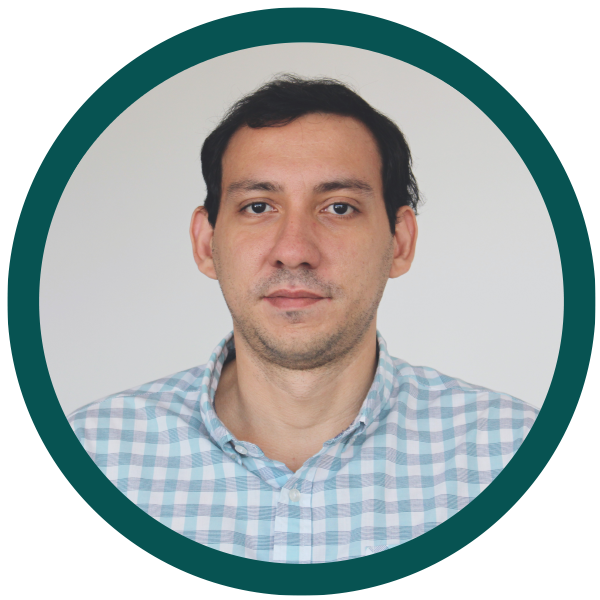
Abner Cardoso Rodrigues Neto, Ph.D.
E-mail | Curriculum Lattes | Google Scholar
Abner Cardoso holds a degree in Computer Science from the State University of Ceará (2007), a Master's in Computer Science from the Federal University of Santa Catarina (2010) and a PhD in Bioinformatics from the University of São Paulo (2016). He has experience in Computer Science, with emphasis on Artificial Intelligence, Signal Processing and Time Series Analysis. .
• Túlio Fernandes de Almeida, Edgard Morya, Abner Cardoso Rodrigues, André Felipe Oliveira de Azevedo Dantas. Development of a Low-Cost Open-Source Measurement System for Joint Angle Estimation. Sensors, 2021
• Fernandoda Silva Fiorin, Mariane de Araújo e Silva, Abner Cardoso Rodrigues. Electrical stimulation in animal models of epilepsy: A review on cellular and electrophysiological aspects. Life Sciences, 2021.
. José Micael Barbosa, Tássia Nunes, Tâmara Nunes, Abner Neto, Edgard Morya. Semi-automatic active contour-based segmentation to remove eyes, meninges, and skull from MRI. (2446-4740) Research on Biomedical Engineering, 2020.
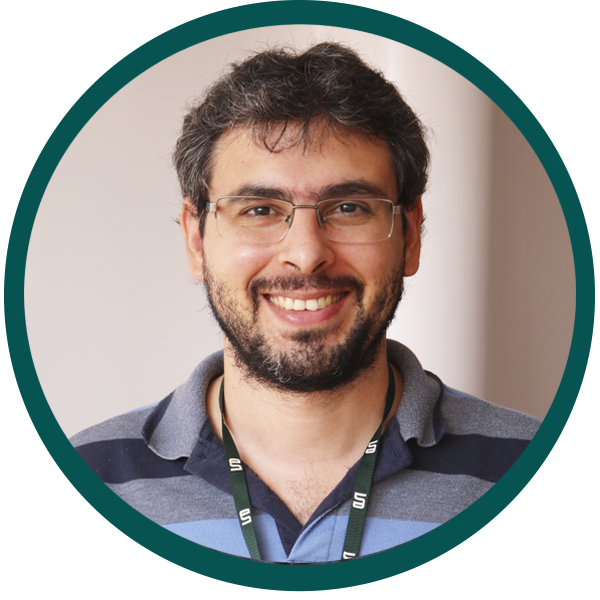
André Dantas, Ph.D.
E-mail | Curriculum Lattes | Google Scholar
André Dantas has two degrees: one in Industrial Automation Technology obtained from the Federal Institute of Education, Science and Technology of Rio Grande do Norte (2009), and another in Computer Engineering from the Potiguar University. In addition, he holds a Master's and Doctorate in Electrical and Computer Engineering from the Federal University of Rio Grande do Norte (UFRN). He has experience in Signal Processing and PID Control Systems, Predictive, Fuzzy, Adaptive, Intelligent.
• Túlio Fernandes de Almeida, Edgard Morya, Abner Cardoso Rodrigues, André Felipe Oliveira de Azevedo Dantas. Development of a Low-Cost Open-Source Measurement System for Joint Angle Estimation. Sensors, 2021
• Emanoel R. Q. Chaves Jr., André F. O. de A. Dantas e André L. Maitelli. Unknown Input Observer-based Actuator and Sensor Fault Estimation Technique for Uncertain Discrete Time Takagi-Sugeno Systems. International Journal of Control, Automation and Systems, 2021
• Domingos L. A. Neto, André F. O. A. Dantas, Túlio F. de Almeida, Junio A. de Lima, Edgard Morya. Comparison of Controller’s Performance for a Knee Joint model based on Functional Electrical Stimulation Input. IEEE Xplore, 2021
• Amanda D. O. S. Dantas, André F. O. A. Dantas, Túlio F. D. Almeida, Carlos E. T. Dórea. Design of reduced complexity controllers for linear systems under constraints using data cluster analysis. International Journal of Systems Science, 2020
• Daniel Guerra Vale da Fonseca, André Felipe O. de A. Dantas, Carlos Eduardo Trabuco Dórea, André Laurindo Maitelli. Explicit Gpc Control Applied To An Approximated Linearized Crane System. (1687-5249) Journal of Control Science and Engineering, 2019
• Jan Erik Mont Gomery Pinto, André Felipe Oliveira de Azevedo Dantas, Andre Laurindo Maitelli, Amanda Danielle Oliveira da Silva Dantas, Carlos Eduardo Trabucco Dórea, João Tiago Loureiro Sousa Campos, Everton José de Castro Rego. PLC Implementation Of Piecewise Affine PI Controller Applied To Industrial Systems With Constrain. Journal of Control, Automation and Electrical Systems, 2019
• Emanoel R. Q. Chaves Jr., André F. O. de A. Dantas, André L. Maitelli. Robust Observer-Based Actuator And Sensor Fault Estimation For Discrete-Time Systems. Journal of Control, Automation and Electrical Systems, 2019
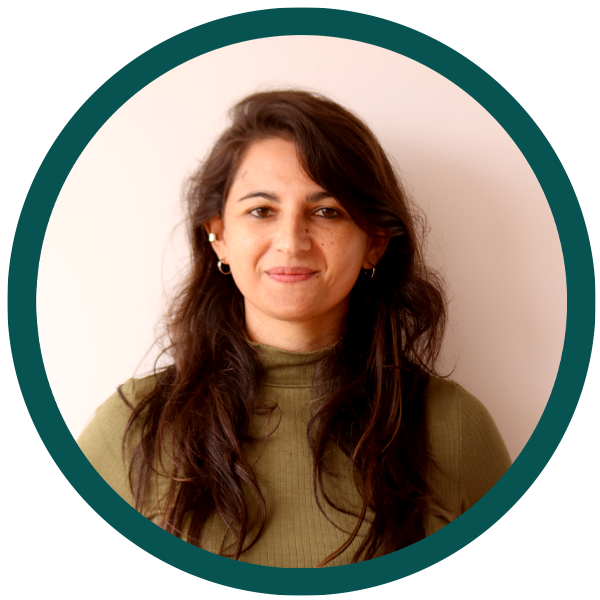
Andressa Radiske, Ph.D.
E-mail | Curriculum Lattes | Google Scholar
Andressa Radiske holds a degree in Biomedicine from the Centro Universitário Metodista do Rio Grande do Sul, a Masters in Medicine and Health Sciences from the Pontifical Catholic University of Rio Grande do Sul (PUC-RS) and a PhD in Biomedical Gerontology also from PUC-RS. She developed postdoctoral research at the Brain Institute (ICE) of the Federal University of Rio Grande do Norte (UFRN) in the areas of neurophysiology and neuropsychopharmacology, with an emphasis on the study of the processes involved in the formation, maintenance and expression of spatial memories, of recognition and aversives motivated by fear. She has expertise in rodent's behavior, pharmacology, molecular biology techniques, in vivo electrophysiology, neuromodulation and optogenetics.

Caroline Cunha do Espírito Santo, Ph.D.
E-mail | Curriculum Lattes
Caroline Cunha holds a degree in Physiotherapy from the State University of Santa Catarina (Udesc), a Masters in Physiotherapy from the same institution and a PhD in Neurosciences from the Federal University of Santa Catarina (UFSC). She developed postdoctoral research at UDESC and worked as a professor in the undergraduate program of Physiotherapy at UFSC (Campus Araranguá) and in the lato sensu postgraduate program in Adult and Child Neurofunctional Physiotherapy at Faculdade Inspirar. She has experience in basic rodent research, experimental models of spinal cord injury and behavior assessment related to locomotor recovery, depression and anxiety. In addition, she also develops studies in the field of applied research, in the area of Neurofunctional Physiotherapy in individuals with Spinal Cord Injury, in the analysis of non-linear measures for the evaluation of biomechanical signals.

Denis Delisle Rodriguez, Ph.D.
E-mail | Curriculum Lattes | Google Scholar
Denis Delisle holds a degree in Telecommunications and Electronics Engineering from the Universidad del Oriente Cuba, a Masters in Biomedical Engineering from the same institution and a PhD in Electrical Engineering from the Federal University of Espírito Santo (UFES), where he also conducted postdoctoral research. He has experience in the field of Biomedical Engineering, with an emphasis on Biological Signal Processing, and working mainly with topics related to Electroencephalography (EEG), pattern recognition, Brain-Machine Interface and knee exoskeletons.
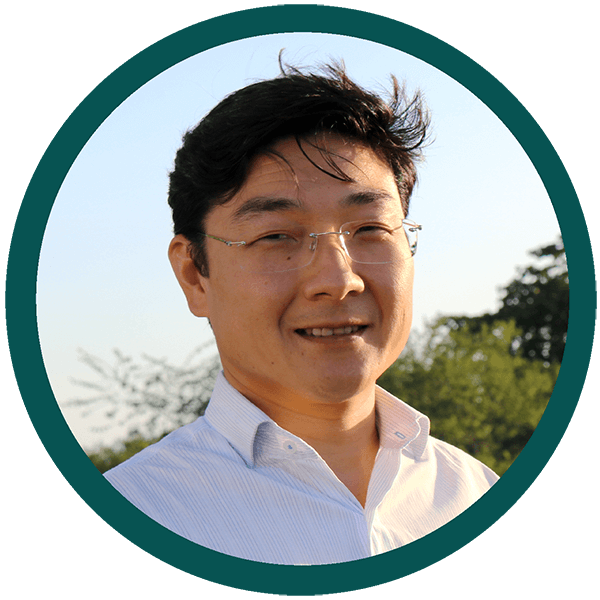
Edgard Morya, Ph.D.
E-mail | Curriculum Lattes | Google Scholar Edgard Morya holds a Bachelor's degree in Physiotherapy from the University of São Paulo (USP), a PhD in Human Physiology from the Institute of Biomedical Sciences of the University of São Paulo and conducted Postdoctoral researchers in Human Physiology at the Institute of Biomedical Sciences of the University of São Paulo. His areas of interest are: motor control, rehabilitation, plasticity, learning, EMG, EEG, psychophysics, perception-action, electroneurophysiology, virtual reality, eye-tracker.
• Daniel Gomes da Silva Machado, Marom Bikson, Abhishek Datta, Egas Caparelli-Dáquer, Gozde Unal, Abrahão F. Baptista, Edilson Serpeloni Cyrino, Li Min Li, Edgard Morya, Alexandre Moreira & Alexandre Hideki Okano. Acute effect of high-definition and conventional tDCS on exercise performance and psychophysiological responses in endurance athletes: a randomized controlled trial. Scientific Reports, 2021
• Alexandre Moreira, Daniel Gomes da Silva Machado, Marom Bikson, Gozde Unal, Paul S. Bradley, Luciane Moscaleski, Taline Costa, Gabriella C .S. G. Kalil, Liaw W. Chao, Abrahão F. Baptista, Edgard Morya, Alexandre H. Okano. Effect of Transcranial Direct Current Stimulation on Professional Female Soccer Players’ Recovery Following Official Matches. Perceptual and Motor Skills, 2021
• Valéria Azevedo de Almeida, Rafael Pauletti Gonçalves, Edgard Morya, Luiza Emilia Cavalcanti Simas, Nivia Maria Rodrigues Arrais, Lilian Lira Lisboa, Lucia Maria Costa Monteiro, Reginaldo Antônio de Oliveira Freitas Júnior. Evaluation of bladder and bowel functions in children with microcephaly and congenital zika syndrome. Journal of Pediatric Urology, 2021
• Domingos L. A. Neto, André F. O. A. Dantas, Túlio F. de Almeida, Junio A. de Lima, Edgard Morya. Comparison of Controller’s Performance for a Knee Joint model based on Functional Electrical Stimulation Input. IEEE Xplore, 2021
• Ledycnarf J. Holanda, Ana Paula M. Fernandes, Júlia Amorim, Aryel Matias, Severino P. Nunes, Danilo Nagem, Ricardo Valentim, Edgard Morya, Ana Raquel Lindquist. Adaptive algorithms as control strategies of smart upper limb orthosis: a protocol for a systematic scoping review. Frontiers in Neuroscience, 2021
• Rommel S. Araujo, Camille R. Silva, Severino P. N. Netto, Edgard Morya e Fabricio L. Brasil. Development of a low-cost EEG-controlled hand exoskeleton 3D printed on textiles. Frontiers In Neuroscience, 2021
• Mouhamed Zorkot, Alex Aquino dos Santos, Severino Peixoto Nunes Netto, José Pablo Gonçalves de Queiroz, Bruno Guedes Spinelli, Gabriela de Araújo Albuquerque, Fábio Evangelista de Santana, Edgard Morya, Fabricio Lima Brasil. Avanços da internet das coisas médicas na saúde e neuroengenharia. Novas Tecnologias Aplicadas à Saúde: inovação, internet das coisas, horizontes e desafios, 2021
• Clecio Gabriel De Souza, Rodrigo Pegado, Jardson Costa, Edgard Morya, Abrahão Fontes Baptista, GozdeUnal, Marom Bikson, Alexandre e Hideki Okano. Alternate sessions of transcranial direct current stimulation (tDCS) reduce chronic pain in women affected by chikungunya. A randomized clinical trial. Brain Stimulation, 2021
• Alexandre Moreira, Daniel Gomes da Silva Machado, Luciane Moscaleski, Marom Bikson, Goz de Unal, Paul S. Bradley, Abrahão F. Baptista, Edgard Morya, Thais Cevada, Lucas Marques, Vinicius Zanetti, Alexandre Hideki Okano. Effect of tDCS on well-being and autonomic function in professional male players after official soccer matches. Psychology & Behavior, 2021
• Camila Rocha Simão, Ledycnarf J. de Holanda, Lilian F. Urbini, Matheus O. Lacerda, Karina da S. Fernandes, Patrícia M. da Silva, Edgard Morya, Ana R. Lindquist. Surface electromyography to identify top-down modulation in complete chronic spinal cord injury: case report. European Journal of Physical and Rehabilitation Medicine, 2021
• Túlio Fernandes de Almeida, Edgard Morya, Abner Cardoso Rodrigues, André Felipe Oliveira de Azevedo Dantas. Development of a Low-Cost Open-Source Measurement System for Joint Angle Estimation. Sensors, 2021
• José Micael Barbosa, Tássia Nunes, Tâmara Nunes, Abner Neto, Edgard Morya. Semi-automatic active contour-based segmentation to remove eyes, meninges, and skull from MRI. (2446-4740) Research on Biomedical Engineering, 2020.
• Álisson de Oliveira Alves, Edgard Morya, Alberto Signoretti, Felipe Denis Mendonça de Oliveira, Raul Benites Paradeda. Aprendendo matemática através de um jogo digital. Brazilian Journal of Development, 2020
• Rodrigo Pegado, Antonio FL Cavalcante and Edgard Morya. Newer rehabilitation therapies: strategies in chikungunya chronic arthralgia. Clinical Medicine Journal, 2020
• Valeria Azevedo De Almeida, Nancy Sotero, Rafael Pauletti Gonçalves, Edgard Morya, Lilian Lira Lisboa, Lucia Maria Costa Monteiro, Reginaldo Antônio de Oliveira Freitas Júnior. Criteria do evaluate neurogenic bowel dysfunction in children with Congenital Zika Syndrome. Protocols.io, 2020
• Abrahão Fontes Baptista. Adriana Baltar, Alexandre Hideki Okano, Alexandre Moreira, Ana Carolina Pinheiro Campos, Ana Mércia Fernandes, André Brunoni, Bashar Badran, Clarice Tanaka, Daniel Andrade, Daniel Gomes Machado, Edgard Morya. Applications of Non-invasive Neuromodulation for the Management of Disorders Related to COVID-19. Frontiers in Neurology, 2020
• Carolina Kunicki, Renan C. Moioli, Miguel Pais-Vieira, André Salles Cunha Peres, Edgard Morya, Miguel A. L. Nicolelis. Frequency-specific coupling in fronto-parieto-occipital cortical circuits underlie active tactile discrimination. Scientific Reports, 2019
• Bárbara Meneses, Junio Lima, Ledycnarf Holanda, Marcela Pereira, Patrícia Silva, Severino Netto, Thaísa Dantas, Fabrício Brasil, Edgard Morya. Inovação em Tecnologia Assistiva: Oportunidades e Desafios. Novas tecnologias aplicadas à saúde: Desenvolvimento de Sistemas Dinâmicos – Conceitos, aplicações e utilização de técnicas inteligentes e regulação, 2019
• Severino Netto, Rommel Araújo, Edgard Morya. Towards a Roadmap for Machine Learning and EEG-Based Brain Computer Interface. Communications in Computer and Information Science, 2019.
• Ozair Silva, Danielly Miranda, Francisco Júnior, Edgard Morya, Reginaldo Freitas Jr., Manuela Nascimento. Brainstem Evoked Response Audiometry Reveals Integrity of the Retrocochlear Pathway in Children with Microcephaly. IFMBE Proceedings XXVI CBEB, 2019
• Adam Pinto, Guilherme Nardari, Marco Mijam, Edgard Morya, Roseli Romero. A Serious Game to Build a Database for ErrP Signal Recognition. Advances in Computational Intelligence, 2019
• Natália MB Bezerra, Luana CFL Leal, Gentil GF Filho, Lorena Andreoli1, Lilian L Lisboa, Edgard Morya, Hougelle Simplício. Sacral Neuromodulation in Children with Neurogenic Bladder Dysfunction. Surgical Medicine Open Access Journal, 2018
• Morya, Edgard; Nascimento, M. S. L. ; Simplicio, H. ; Freitas Jr, R. ; Brasil, Fabricio L. Neuroengenharia Aplicada às Tecnologias Assistivas e de Reabilitação. In: Atson Carlos de S. Fernandes; Fernanda Ferraz de Castro; Claudio Reynaldo B. de Souza; Eduardo Manuel de F. Jorge; Josiane Dantas V. Barbosa. (Org.). Empreendedorismo e Inovação em Saúde: Ciência & Mercado. 10ed. Salvador: IFBA, 2018, v. 10, p. 111-120
• Andreoli L., Simplicio, H., Morya, E. Egg Model Training Protocol for Stereotaxic Neurosurgery and Microelectrode Implantation. World Neurosurgery, 2018
• Machado, Birajara Soares; Fonseca, Andre; Morya, Edgard; Amaro Jr, Edson. Chaotic dynamics in brain activity: An approach based on cross prediction errors for nonstationary signals. Advances in Data Science and Adaptive Analysis, 2018
• Celina A. Reis Paula, Camille Reategui, Bruna Karen de Sousa Costa, Caio Queiroz da Fonseca, Luana da Silva, Edgard Morya, and Fabricio Lima Brasil. High-Frequency EEG Variations in Children with Autism Spectrum Disorder during Human Faces Visualization. BioMed Research International, 2017
• Ribeiro, MW; Neto, JF; Morya, E; Brasil, FL; de Araújo, MFP. OBAT: An open-source and low-cost operant box for auditory discriminative tasks. Behavior Research Methods, 2017
. Holanda L J, Silva PMM, Amorim TC, Lacerda MO, Simão CR, Morya E. Robotic assisted gait as a tool for rehabilitation of individuals with spinal cord injury: a systematic review. Journal of NeuroEngineering and Rehabilitation, 2017
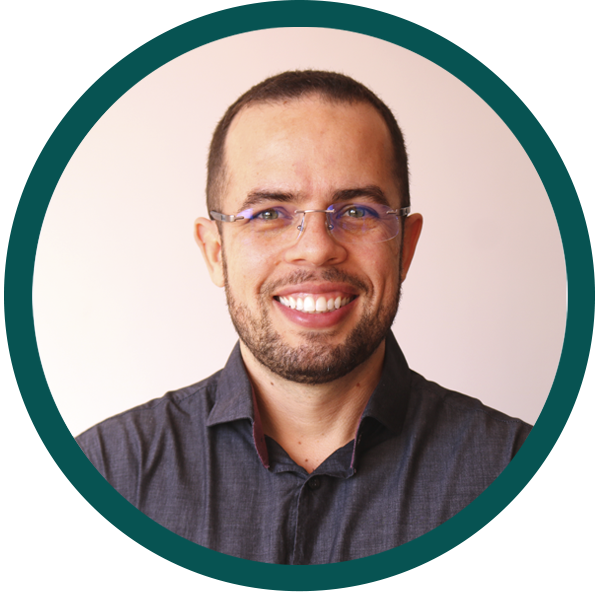
Fabrício Lima Brasil, Ph.D.
E-mail | Curriculum Lattes | Google Scholar
Fabrício Brasil holds a degree in Electrical Engineering obtained from the Federal University of Mato Grosso, a Master's in Mechanical Engineering from the Federal University of Santa Catarina and a PhD in Neuroscience from the Max Planck Research School – University of Tübingen, Germany. He has experience in the area of brain-machine interface, rehabilitation, plasticity, Neuromodulation (brain stimulation with TMS and tDCS), equipment development, assistive technology, as well as projects in Biomedical Engineering.
• Rommel S. Araujo, Camille R. Silva, Severino P. N. Netto, Edgard Morya e Fabricio L. Brasil. Development of a low-cost EEG-controlled hand exoskeleton 3D printed on textiles. Frontiers In Neuroscience, 2021
• Mouhamed Zorkot, Alex Aquino dos Santos, Severino Peixoto Nunes Netto, José Pablo Gonçalves de Queiroz, Bruno Guedes Spinelli, Gabriela de Araújo Albuquerque, Fábio Evangelista de Santana, Edgard Morya, Fabricio Lima Brasil. Avanços da internet das coisas médicas na saúde e neuroengenharia. Novas Tecnologias Aplicadas à Saúde: inovação, internet das coisas, horizontes e desafios, 2021
• Ander Ramos-Murguialday, Marco R Curado, Doris Broetz, Özge Yilmaz, Fabricio L Brasil, Giulia Liberati, Eliana Garcia-Cossio, Woosang Cho, Andrea Caria, Leonardo G Cohen, Niels Birbaumer. Brain-Machine Interface in Chronic Stroke: Randomized Trial Long-Term Follow-up. Neurorehabilitation And Neural Repair, 2019
• Bárbara Meneses, Junio Lima, Ledycnarf Holanda, Marcela Pereira, Patrícia Silva, Severino Netto, Thaísa Dantas, Fabrício Brasil, Edgard Morya. Inovação em Tecnologia Assistiva: Oportunidades e Desafios, Novas tecnologias aplicadas à saúde: Desenvolvimento de Sistemas Dinâmicos – Conceitos, aplicações e utilização de técnicas inteligentes e regulação, 2019
• Kim Yano, Severino Netto, Mayara Silva, Alice Suassuna, Fernanda Mesquita, Mariana Araújo, Fabrício Brasil, Manuela Nascimento. SciTable: A 3D Printed Surgical Table for Spinal Cord Implant Procedures. IFMBE Proceedings XXVI CBEB, 2019
• Ribeiro, MW; Neto, JF; Morya, E; Brasil, FL; de Araújo, MFP. OBAT: An open-source and low-cost operant box for auditory discriminative tasks. Behavior Research Methods, 2017.
• McConnell, A; Moioli, R ; Brasil, F ; Vallejo, M ; Corne, D ; Vargas, P ; Stokes, A . Robotic devices and brain-machine interfaces for hand rehabilitation post-stroke. Journal of Rehabilitation Medicine, 2017
• McConnell, Alistair C.; Vallejo, Marta; Moioli, Renan Cipriano ; Brasil, Fabricio L.; Secciani, NicolaI; Nemitz, Markusp P. ; Riquart, Cecile P. ; Corne, David W. ; Vargas, Patricia A. ; Stokes, Adam A. SOPHIA: Soft Orthotic Physiotherapy Hand Interactive Aid. Frontiers in Mechanical Engineering, 2017
• Vargas, Patricia A.; Brasil, Fabricio Lima; McConnell, Alistair C.; Vallejo, Marta; Corne, David W.; Stokes, Adam A.; Moioli, Renan Cipriano. Combining Soft Robotics and Brain-Machine Interfaces for Stroke Rehabilitation. Biosystems & Biorobotics, 2016

María Carolina Gonzalez, Ph.D
E-mail | Curriculum Lattes | Google Scholar
Carolina Gonzalez holds a degree in Biotechnology with an emphasis on Cellular and Molecular Biology from the National University of Quilmes and a PhD in Physiological Sciences from the Faculty of Medicine of the University of Buenos Aires (Argentina). She carried out Post-Doctoral research at the Memory Research Laboratory of the Brain Institute of the Federal University of Rio Grande do Norte (UFRN) as a fellow in the Young Talent Attraction (A) modality of the Science Without Borders Program and PNPD. In 2021, she won the Early Career Award from the International Brain Research Organization. She has experience in the fields of neurophysiology and neuropsychopharmacology and studies the cellular and molecular mechanisms involved in the formation and expression of memories through behavioral, biochemical, pharmacological and electrophysiological approaches.
• Andressa Radiske, Maria Carolina Gonzalez, Diana A. Nôga, Janine I. Rossato, Lia R.M. Bevilaqua, Martín Cammarota. mTOR inhibition impairs extinction memory reconsolidation. Learning & Memory, 2021
• Maria Carolina Gonzalez, Andressa Radiske, Sergio Conde-Ocazionez, Janine I. Rossato, Lia R.M. Bevilaqua & Martín Cammarota. Reactivation-dependent amnesia for object recognition memory is contingent on hippocampal theta-gamma coupling during recall. Learning & Memory, 2021
• Andressa Radiske, Maria Carolina Gonzalez, Janine I. Rossato, Gênedy Apolinário, João R. de Oliveira, Lia R. M. Bevilaqua & Martín Cammarota. Avoidance memory requires CaMKII activity to persist after recall. Molecular Brain, 2021
• Andressa Radiske, Maria Carolina Gonzalez, Sergio Conde-Ocasionez, Janine I. Rossato, Cristiano A. Kohler e Martin Cammarota. Cross-Frequency Phase-Amplitude Coupling between Hippocampal Theta and Gamma Oscillations during Recall Destabilizes Memory and Renders It Susceptible to Reconsolidation Disruption. Journal of Neuroscience, 2020
• Maria Carolina Gonzalez, Andressa Radiske, Martín Cammarota. On the Involvement of BDNF Signaling in Memory Reconsolidation. Frontiers in Celullar Neuroscience, 2019
• Janine I. Rossato, Maria Carolina Gonzalez, Andressa Radiske, Gênedy Apolinário, Sergio Conde-Ocazionez, Lia R. Bevilaqua and Martín Cammarota. PKMζ Inhibition Disrupts Reconsolidation and Erases Object Recognition Memory. Journal of Neuroscience, 2019
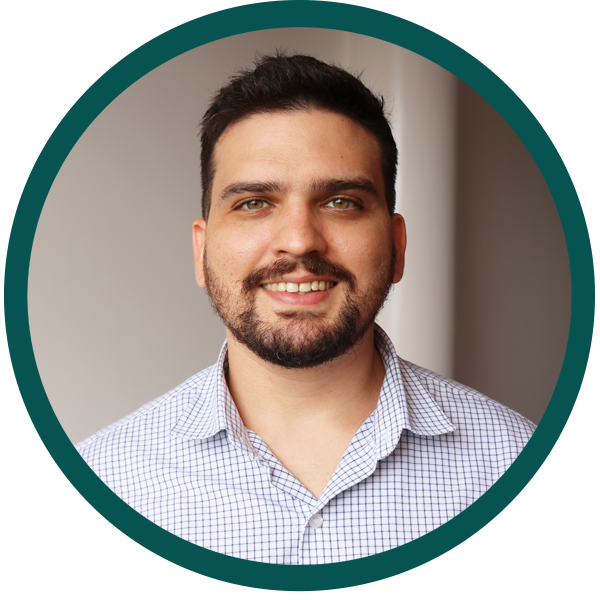
Felipe Porto Fiuza, Ph.D.
E-mail | Curriculum Lattes | Google Scholar
Felipe Porto Fiuza holds a degree in Biological Sciences from the State University of Ceará (2012), a Master's (2015) and a PhD (2018) in Psychobiology from the Federal University of Rio Grande do Norte (UFRN) in the area of physiological psychology. The Researcher held a sandwich doctorate between 2017 and 2018 at the Universidad Autonoma de Madrid, in Spain, and developed Postdoctoral activities in the postgraduate program in Psychobiology from UFRN's Department of Physiology. He has experience in morphofunctional sciences, with an emphasis on quantitative neuroanatomy, working mainly on the following topics: Aging, Stereology, Chronobiology and Conectomics.
• Felipe Porto Fiuza, José Pablo Queiroz, Antônio Carlos Aquino, Diego Câmara, Luiz Eduardo Brandão, Ramon Hypólito Lima, José Rodolfo Cavalcanti, Rovena Clara Engelberth e Jeferson Cavalcante. Aging alters daily and regional calretinin neuronal expression in the rat non-image forming visual thalamus. Frontiers in Aging Neuroscience, 2021

Hougelle Simplício, M.D., Ph.D
E-mail | Curriculum Lattes | Google Scholar
Hougelle Simplício is a medical doctor graduated from the Federal University of Rio Grande do Norte (UFRN). He has a specialization in Neurosurgery from Hospital Santa Marcelina, in São Paulo, Brazil, and a fellowship in Functional Neurosurgery. He is a Doctor in Neurology with a title obtained from the Faculty of Medicine of the University of São Paulo (USP) and is a Professor at the State University of Rio Grande do Norte (Uern). His areas of interest are: neuromodulation and functional neurosurgery – Parkinson’s, Epilepsies and chronic pain – in basic and applied research, translational research development and innovation.
• Ivanna Trícia Gonçalvez Fernandes, Patrícia Mayara da Silva, Barbara Osanilda Meneses, José Micael Barbosa, Junio Alves de Lima, Hougelle Simplício. Impacto das neurotecnologias emergentes na saúde 4.0. Novas Tecnologias Aplicadas à Saúde: inovação, internet das coisas, horizontes e desafios, 2021
• Bruno Braz Garcia. Edson Ricardo Junior, Mariana Ferreira Pereira de Araújo, Hougelle Simplício. History of and Insights Into Spinal Cord Stimulation in Parkinson Disease. Neurorehabilitation and Neural Repair, 2020
• Natália MB Bezerra, Luana CFL Leal, Gentil GF Filho, Lorena Andreoli1, Lilian L Lisboa, Edgard Morya, Hougelle Simplício. Sacral Neuromodulation in Children with Neurogenic Bladder Dysfunction. Surgical Medicine Open Access Journal, 2018
• Morya, Edgard; Nascimento, M. S. L. ; Simplicio, H. ; Freitas Jr, R. ; Brasil, Fabricio L. Neuroengenharia Aplicada às Tecnologias Assistivas e de Reabilitação. In: Atson Carlos de S. Fernandes; Fernanda Ferraz de Castro; Claudio Reynaldo B. de Souza; Eduardo Manuel de F. Jorge; Josiane Dantas V. Barbosa. (Org.). Empreendedorismo e Inovação em Saúde: Ciência & Mercado. 10ed. Salvador: IFBA, 2018, v. 10, p. 111-120
• Andreoli L., Simplicio, H., Morya, E. Egg Model Training Protocol for Stereotaxic Neurosurgery and Microelectrode Implantation. World Neurosurgery, 2018
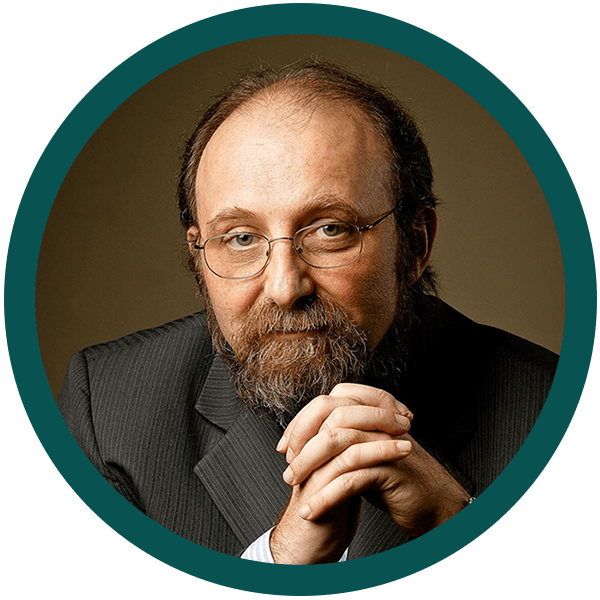
Miguel Nicolelis, M.D., Ph.D.
Curriculum Lattes | Google Scholar
Miguel Nicolelis holds a degree in Medicine from the University of São Paulo (USP) and a PhD in Science (General Physiology) from the same institution. He is a Full Professor in the Department of Neurobiology and Co-Director of the Center for Neuroengineering at Duke University (USA), consultant at the Brain and Mind Institute at the Federal Polytechnic School of Lausanne (Switzerland) and president of the Alberto Santos Dumont Association for Research Support (AASDAP, in portuguese abbreviation). He has experience in the field of Physiology, with an emphasis on Neurophysiology. His lines of research are: computational properties of large neural sets in primate behavior; sensorimotor plasticity in adult animals and in sensory development; neuronal bases of sensorimotor learning; development of brain-machine interfaces to restore neurological function; neural basis of tactile perception.
• Nicolelis Laboratory Series – 20 Years of Brain-Machine Interface Research – Volume 1, 2019
• Nicolelis Laboratory Series – 20 Years of Brain-Machine Interface Research – Volume 2, 2019
• Kunicki C, Moioli RC, Pais-Vieira M, Peres ASC, Morya E, Nicolelis MAL. Frequency-specifc coupling in fronto-parieto-occipital cortical circuits underlie active tactile discrimination. Scientific Reports, 2019
• Shokur S, Donati ARC, Campos DSF, Gitti C, Bao G, Fischer D, Almeida S, Braga VAS, Augusto P, Petty C, Alho EJL, Lebediev M, Song AW, Nicolelis MAL. Training with brain-machine interfaces, visuotactile feedback and assisted locomotion improves sensorimotor, visceral, and psychological signs in chronic paraplegic patients. PLoS ONE, 2018
• Yin A, Tseng PH, Rajangam S, Lebedev MA, Nicolelis MAL. Place cell-like activity in the primary sensorimotor and premotor cortex during monkey whole-body navigation. Scientific Reports, 2018
• Tseng P-H, Rajangam S, Lehew G, Lebedev MA, Nicolelis MAL. Interbrain cortical synchronization encodes multiple aspects of social interactions in monkey pairs, Scientific Reports, 2018
• Thomson E, Zea I, Windham W, Thenaisie Y, Walker C, Pedowitz P, França W, Graneiro AL, Nicolelis MAL. Merging visible and invisible light using a cortical neuroprosthesis without impairing native sensory function. eNeuro, 2017
• Ramakrishnan A, Byun YW, Rand K, Pedersen C, Lebedev MA, Nicolelis MA. Cortical Neurons Multiplex Reward-Related Signals along with Sensory and Motor Information. Proceedings of the National Academy of Sciences of the United States of America (PNAS), 2017
• Miguel A.L. Nicolelis. Are we at risk of becoming biological digital machines? Nature Human Behaviour, 2017
• Lebedev M, Nicolelis MAL. Brain-machine interfaces: from basics science to neuroprosthetic devices, and neurorehabilitation. Physiological Review, 2017
• Yadav A, Nicolelis MAL. Electrical stimulation of the dorsal columns of the spinal cord in Parkinson’s disease. Movement Disorders, 2017
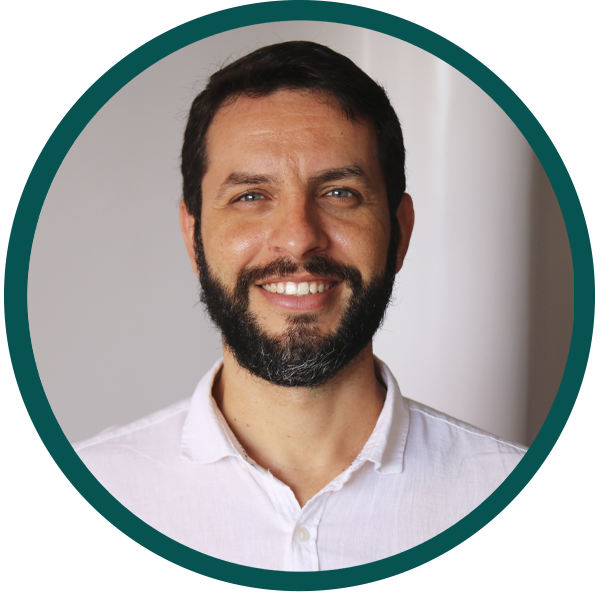
Ramón Hypolito Lima, Ph.D.
E-mail | Curriculum Lattes | Google Scholar Ramón Hypolito holds a degree in Biological Sciences and a PhD in Neuroscience from the Pontifical Catholic University (PUC) of Rio Grande do Sul. For five years he worked as a researcher and postdoctoral fellow at the Federal University of Rio Grande do Norte (UFRN). He was also a Postdoctoral fellow in the Department of Psychology at the University of Birmingham (UK), where he carried out research at the Memory Persistence Laboratory. He has expertise in neurochemistry, animal behavior and the neuropharmacology of basic memory mechanisms.
• Felipe Porto Fiuza, José Pablo Queiroz, Antônio Carlos Aquino, Diego Câmara, Luiz Eduardo Brandão, Ramon Hypólito Lima, José Rodolfo Cavalcanti, Rovena Clara Engelberth e Jeferson Cavalcante. Aging alters daily and regional calretinin neuronal expression in the rat non-image forming visual thalamus. Frontiers in Aging Neuroscience, 2021
• Luana Carla dos Santos, Décio Dutra Junqueira Ayres, Ícaro Alekseide Sousa Pinto, Marana Ali Silveira, Maryelle de Cássia Albino, Victor Anastácio Duarte Holanda, Ramón Hypolito Lima, Eunice André, Cláudia Maria Padovan, Elaine Cristina Gavioli, Vanessa de Paula Soares. Early and late behavioral consequences of ethanol withdrawal: focus on brain indoleamine 2,3 dioxygenase activity. Alcohol, 2021
• Phietica R. R. Silva, Regina H. Silva, Ramón Hypolito Lima, Ywlliane S. Meurer, Bruno Ceppi and Maria Emilia Yamamoto. Are There Multiple Motivators for Helping Behavior in Rats? Frontiers in Psychology, 2020
• Clarissa A. Moura, Matheus C. Oliveira, Layse F. Costa, Pamella R. F. Tiago, Victor A. D. Holanda, Ramon H. Lima, Fernanda C. Cagni, Bruno Lobão-Soares, Franscico Bolaños-Jiménez, Elaine C. Gavioli. Prenatal restraint stress impairs recognition memory in adult male and female offspring, Acta Neuropsychiatrica, 2020
• Ingrid Brasilino Montenegro Bentode Souza, Ywlliane da Silva Rodrigues Meurer, Priscila Macedo Tavares, Karen Cristina Pugliane, Ramón Hypolito Lima, Regina Helena Silva, Flávio Freitas Barbosa. Episodic-like memory impairment induced by sub-anaesthetic doses of ketamine. Behavioural Brain Research, 2019
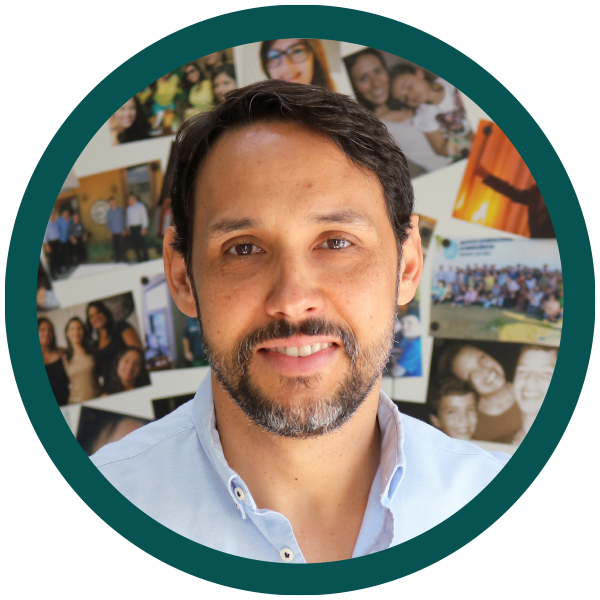
Reginaldo Freitas Jr, M.D., Ph.D.
E-mail | Curriculum Lattes
Reginaldo Freitas Jr. is a medical doctor. He holds a Master's and a PhD in Medical Sciences from the Faculty of Medicine of Ribeirão Preto, University of São Paulo. He is an Associate Professor II of the Department of Tocogynecology at the Federal University of Rio Grande do Norte (UFRN) and General Director of the Santos Dumont Institute. His areas of Concentration are: Tocogynecology and maternal and child health.
• Valéria Azevedo de Almeida, Rafael Pauletti Gonçalves, Edgard Morya, Luiza Emilia Cavalcanti Simas, Nivia Maria Rodrigues Arrais, Lilian Lira Lisboa, Lucia Maria Costa Monteiro, Reginaldo Antônio de Oliveira Freitas Júnior. Evaluation of bladder and bowel functions in children with microcephaly and congenital zika syndrome. Journal of Pediatric Urology, 2021
• Reginaldo Antônio de Oliveira Freitas Júnior, Rafael Antônio Santana de Oliveira Freitas, Marcelo Pacheco Carvalho, Samantha Santos de Albuquerque Maranhão, Lilian Lira Lisboa, George Dantas de Azevedo. Inclusão do cuidado com a saúde das pessoas com deficiência nos currículos de medicina do Brasil. Revista Brasileira de Educação Médica, 2021
• Reginaldo Freitas Jr., Carolina Barreto, Alexandra Lima, Carla Glenda Silva. Development of Medical Students’ Communication Skills for HIV Pre-Test Counseling at Prenatal Care. Rev. Brasileira de Educação Médica, 2020
• Reginaldo Antônio de Oliveira Freitas Júnior. Avoidable maternal mortality as social injustice. Revista Brasileira de Saúde Materno-Infantil, 2020
• Valeria Azevedo De Almeida, Nancy Sotero, Rafael Pauletti Gonçalves, Edgard Morya, Lilian Lira Lisboa, Lucia Maria Costa Monteiro, Reginaldo Antônio de Oliveira Freitas Júnior. Criteria do evaluate neurogenic bowel dysfunction in children with Congenital Zika Syndrome. Protocols.io, 2020
• Carolina Araujo Damasio Santos, Lilian Lira Lisboa, Alexandra Nascimento Cassiano, Alexandra Silva de Lima, Reginaldo Antonio de Oliveira Freitas-Junior. A arte de nascer (The art of being born). Education for Health, 2020
• Reginaldo Antonio de Oliveira Freitas-Junior, Carolina Araujo Damasio Santos, Lilian Lira Lisboa, Ana Karla Monteiro Santana de Oliveira Freitas, George Dantas Azevedo. An innovative educational strategy to addressing cultural competence in healthcare for quilombola women. Education for Health, 2020
• Samantha Maranhão, Lilian Lisboa, Celina Reis, Reginaldo Freitas Júnior. Educação e Trabalho Interprofissional na Atenção ao Transtorno do Espectro do Autismo: Uma Necessidade para a Integralidade do Cuidado no SUS. Revista Contexto & Saúde, 2019
• Morya, Edgard; Nascimento, M. S. L. ; Simplicio, H. ; Freitas Jr, R. ; Brasil, Fabricio L. Neuroengenharia Aplicada às Tecnologias Assistivas e de Reabilitação. In: Atson Carlos de S. Fernandes; Fernanda Ferraz de Castro; Claudio Reynaldo B. de Souza; Eduardo Manuel de F. Jorge; Josiane Dantas V. Barbosa. (Org.). Empreendedorismo e Inovação em Saúde: Ciência & Mercado. 10ed. Salvador: IFBA, 2018, v. 10, p. 111-120
PESQUISADORES DE PÓS-DOUTORADO
Fernando da Silva Fiorin, Ph.D.
Curriculum Lattes
Fernando Fiorin holds a degree in Physical Education from the Federal University of Santa Maria (UFSM), a Master's in Biological Sciences (toxicological biochemistry) also from UFSM and a PhD in Neurosciences from the Federal University of Santa Catarina (UFSC), in the area of Cellular and Molecular Neurobiology. He develops postdoctoral research at the Santos Dumont Institute. His main lines of research involve the role of physical exercise in experimental models of traumatic brain injury, brain connectivity and neuromodulation.
Sheila Andreoli Balen, Ph.D.
Curriculum Lattes
Sheila Balen holds a degree in Speech Therapy from the Federal University of Santa Maria (UFSM), a Master's in Speech Therapy from the Pontifical Catholic University of São Paulo (PUC-SP) and a PhD in Neuroscience and Behavior from the University of São Paulo (USP). She is a professor at the Department of Speech Therapy from the Federal University of Rio Grande do Norte (UFRN) and at the Associated Graduate Program in Speech Therapy from UFRN and the Federal University of Paraíba (UFPB). She is a researcher at the hearing and language research base at the Laboratory of Technological Innovation in Health (LAIS) at the Onofre Lopes University Hospital at UFRN and carries out postdoctoral research at the Santos Dumont Institute. She develops researches in the areas of child, school and community hearing health, as well as in the area of neuroaudiology of neurosciences and their interfaces with attentional, memory and language mechanisms, as well as the development of cognitive and perceptual skills in babies and children.
Valéria Reis do Canto Pereira, Ph.D.
Curriculum Lattes
Valéria Canto Pereira holds a degree in Speech Therapy from the University of Fortaleza (UNIFOR), a specialization in Human Communication Disorders from the Federal University of São Paulo (Unifesp), a Master's in Speech Therapy from the Pontifical Catholic University of São Paulo (PUC-SP) and a PhD in Sciences from the University of São Paulo (USP). She developed postdoctoral research in the area of Neurosciences at the University of Brasília (UnB), where she is an Adjunct Professor II of the Speech Therapy course. She develops postdoctoral research at the Santos Dumont Institute in the field of Speech Therapy-Audiology and Psychology, where she studies cognitive, perceptual and motor processes of vision and hearing, attention, memory and their respective disorders.
COLLABORATING RESEARCHERS
Ana Carolina B. Kunicki, Ph.D.
Curriculum Lattes
Ana Carolina Kunicki holds a degree in Veterinary Medicine from the Federal Rural University of Pernambuco, a PhD in Sciences (Neurosciences) from the Postgraduate Program in Experimental Pathophysiology of the Faculty of Medicine of the University of São Paulo (USP) and developted Postdoctoratal activities at the International Institute of Neurosciences Edmond and Lily Safra. She has experience in the field of neurophysiology, with an emphasis on brain-machine interface and sensorimotor integration.
André Salles Cunha Peres, Ph.D.
Curriculum Lattes
André Salles holds a degree in Medical Physics from the University of São Paulo (USP), a Master's in Physical and Applied Sciences from the Faculty of Philosophy, Sciences and Letters of Ribeirão Preto, a PhD in Physics Applied to Medicine and Biology also from the Faculty of Ribeirão Preto and has conducted postdoctoral researches at the Brain Institute of the Federal University of Rio Grande do Norte (UFRN). He has experience in the field of biomedical instrumentation and signal processing, working mainly with: transcranial magnetic stimulation (TMS), functional magnetic resonance imaging (fMRI), neuronavigation and machine learning.
Manuela S. Nascimento, Ph.D.
Curriculum Lattes
Manuela Nascimento holds a degree in Biological Sciences from the Federal University of Rio Grande do Norte (UFRN), a Master's and Doctorate in Basic and Applied Immunology from the Faculty of Medicine of Ribeirão Preto of the University of São Paulo. She also did a sandwich PhD at Yale University, USA. Her main experience is in Immunology, Molecular Biology and Neuroscience, and her areas of interest are immunological mechanisms after neuromodulation, innate immunity x adaptive immunity interface, neuroimmunological interfaces, inflammation, neurodegenerative diseases and infectious diseases.
Mariana F. P. de Araújo, Ph.D.
Curriculum Lattes
Mariana F. P. de Araújo holds a degree in Biological Sciences from the University of Brasília (UnB), a Master's degree in Health Sciences from the University of Brasília and a PhD in Emotional and Cognitive Neuroscience from the University of Toyama, Japan. Her areas of interest are primate cognition, neurobiology of social behavior, electrophysiology, neurophysiology and neuromodulation.
Renan Cipriano Moioli, Ph.D.
Curriculum Lattes
Renan Moioli holds a degree in Electrical Engineering from the State University of Campinas (2006), a Master's from the same university (2008) with an emphasis on computational intelligence and robotics, and a PhD in Cognitive Sciences from the Center for Computational Neuroscience and Robotics at the University of Sussex (UK). In 2018, he became a Newton Advanced Fellow of the Royal Society/UK. His projects develop and explore computational intelligence tools in the context of neuroengineering, from the construction of brain-machine interfaces to the search for neural patterns in cognitive processes, with a focus on applications for health and other fronts of the productive sector. He has experience in Electrical Engineering and Computer Science, with an emphasis on computational intelligence, machine learning, signal processing, information theory and autonomous robotics.










